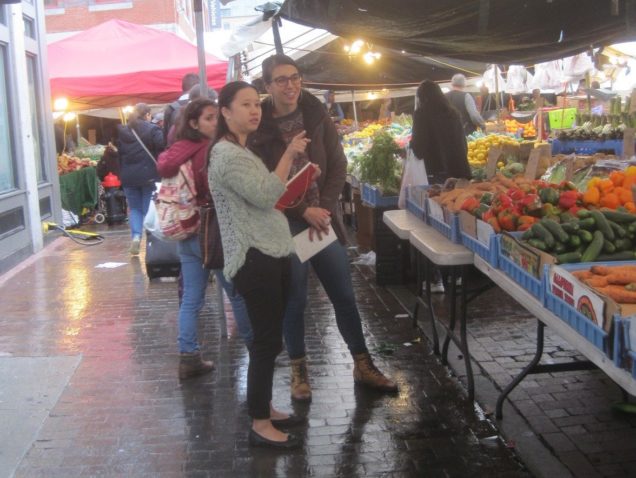Course Spotlight: Anthropology of Food

Dr. Karen Metheny, Senior Lecturer in Gastronomy, will teach Anthropology of Food (ML 641 C1) on Wednesdays during the Fall 2018 semester, and has prepared this course spotlight.
Been to Haymarket recently? It is Boston’s oldest food market and provides a wonderfully rich food experience. But Haymarket also lets us explore other topics. Why are certain foods thought to be good to eat and others are not? How are the preparation, display, and consumption of food invested with meaning? What can food tell us about human culture and social organization? Food offers us many opportunities to explore the ways in which humans go about their daily lives, from breaking bread at the family table to haggling over the price of meat at the market to worrying about having enough to eat. Food can also tell us about larger social organizations and global interconnections through products like Spam that are traded around the globe and the ways in which a fruit like the tomato transformed the culinary culture of European nations.
ML 641 serves as an introduction to the anthropological study of food, and to the study of food as a cultural system. We look at how food anthropology has developed as a subfield of cultural anthropology, including methodologies and theoretical frameworks. We also consider the work of ethnography—from the role the ethnographer plays in documenting the food practices of cultural groups, and the significance of those practices, but also the challenges ethnographers may encounter as they engage with foods and cultures that are unfamiliar to them. Finally, in this cross-cultural exploration of food and foodways, students explore the communicative and symbolic roles of food and drink in ritual, reciprocity and exchange, social display, and the construction of identity. We also look at the transformative role of food in the context of culture contact, diaspora, and (im)migration; the relationship between food and ideas of bodily health and body image; food and memory; and the globalization of food as it relates to politics, power, and identity.
This course offers students opportunities for hands-on, experiential learning, including exercises in ethnographic observation at Haymarket and Boston Public Market, food mapping exercises, and a final project in which students research and recreate a food dish as a lens through which to view a particular culture or foodway. Join us!
Anthropology of Food (ML 641 C1) will meet on Wednesdays, 6-8:45 pm, beginning on September 5. Registration information can be found here.